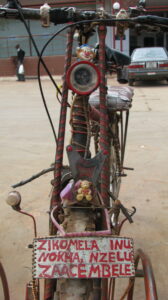Where Cycling Legacy Meets Bicycle Production and Dedicated Lanes
Chipata, dubbed Zambia’s “New Amsterdam,” boasts a unique urban cycling culture characterized by numerous cyclists, bicycle taxis, and dedicated infrastructure. Founded in 1896 as Fort Jameson, this city near the Malawi border evolved from a British colonial outpost into a hub of vibrant cross-border trade and cultural exchanges. Its streets feature combined bicycle-pedestrian lanes and dedicated bike lanes along the central Umodzi Highway, a rarity in African cities.


Post-independence, the establishment of Luangwa Industries Limited, a state-owned bicycle assembly factory, made bicycles affordable and fostered the local cycling culture. Although the factory has since closed and cheaper imports now prevail, cycling remains widespread. Chipata’s car-driving culture is known for courteously stopping for pedestrians. Together with its dedicated infrastructure, this traffic culture enhances safety for its numerous cyclists and pedestrians, reinforcing its reputation as a safe, cycle-friendly city.
In the Chipata chapter of the Cycling Cities: The African Experience, Chris Chirwa and Emmanuel Kamuna investigate the history and culture of this Eastern Zambian city and its people, bringing to light its rare qualities that make cyclists feel welcome on its streets.